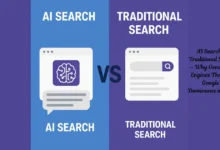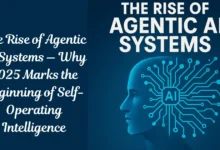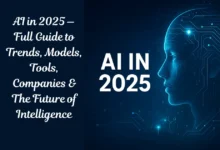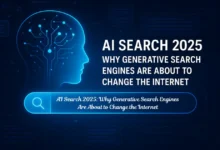AI in Smartphones 2025 — How On-Device Intelligence Is Transforming the Future of Mobile Technology
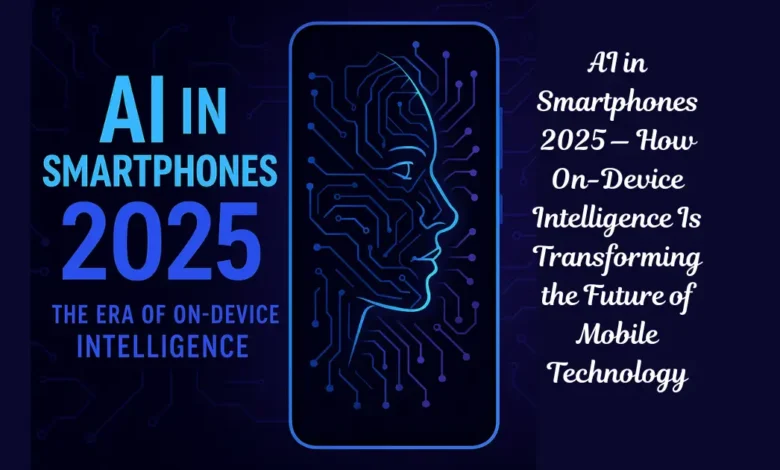
AI in Smartphones 2025 is redefining mobile intelligence with on-device reasoning, smarter cameras, faster performance, and deeply personalized user experiences.
We are entering a new era where the intelligence lives inside the phone itself, not in distant cloud servers. This changes everything: speed, privacy, personalization, performance, and the entire user experience.
This article explains how AI is reshaping smartphones in 2025, why on-device intelligence is becoming the new standard, and what this means for the next decade of mobile technology.
table of contents
AI in Smartphones 2025: The Shift Toward On-Device Intelligence
AI in Smartphones 2025 represents the first year phones become more than communication tools — they become context-aware computing systems that understand their environment and their users with human-like precision.
The shift is driven by three forces:
- powerful on-device chips
- more efficient generative models
- edge-based intelligence replacing the cloud
Let’s explore the transformation in detail.
1. On-Device Reasoning: The Biggest Breakthrough of 2025
Before 2025, smartphones relied almost entirely on servers for:
- voice recognition
- translation
- image analysis
- summarization
- AI-generated content
This made AI slow, dependent on connectivity, and limited by privacy concerns.
But with Apple’s M-series neural engines, Qualcomm’s Snapdragon X Elite, and Google’s Tensor G4, 2025 introduces true on-device reasoning.
Your phone can now:
- understand complex instructions
- generate text instantly
- interpret scenes through the camera
- summarize long messages
- analyze content offline
- adapt responses based on context
This eliminates lag, reduces power consumption, and ensures private processing.
2. AI Becomes the Core of Mobile Photography
Photography has become the battlefield of mobile innovation.
AI is no longer “editing the picture” — it is generating the picture you meant to take.
Smartphones in 2025 can:
- remove unwanted objects automatically
- fix lighting in real time
- reconstruct blurry faces
- identify subjects with precision
- enhance low-light performance through AI-driven noise elimination
- generate new frames for ultra-steady videos
- analyze facial expressions to optimize portrait mode
Your smartphone becomes a mini Hollywood studio in your pocket.
3. AI-Powered Personal Assistants Become Autonomous
In 2025, personal assistants are no longer passive.
They plan, organize, suggest, and sometimes act without waiting for a prompt.
Examples:
- your phone automatically drafts replies to important messages
- it reminds you of deadlines without being asked
- it suggests apps based on behavior
- it summarizes notifications
- it organizes your day based on previous habits
- it predicts what you need before you ask
This is the beginning of agentic mobile intelligence — small agents working inside your phone to smooth your daily life.
4. Real-Time Translation Becomes Near Perfect
On-device models now handle:
- live audio translation
- camera translation
- offline conversation mode
- contextual translation (tone, formality, intention)
For the first time, travelers can communicate across languages without internet access.
5. AI Redefines Mobile Gaming Performance
AI models in 2025:
- upscale graphics in real time
- generate missing frames
- reduce power consumption
- predict user input
- simulate physics for smoother gameplay
Games run faster, look better, and consume less battery.
6. Hyper-Personalized Operating Systems
Mobile operating systems now understand users at a deeper level.
AI creates:
- personalized home screens
- adaptive UI layouts
- context-based widgets
- predictive shortcuts
- smart notification bundles
Your phone rearranges itself based on your habits — not the other way around.
7. Security Becomes Proactive, Not Reactive
AI protects your smartphone by:
- detecting suspicious apps
- analyzing network behavior
- identifying phishing attempts
- monitoring microphone and camera access
- blocking dangerous links before you click them
Phones are no longer waiting for threats — they predict and neutralize them.
Why AI in Smartphones 2025 Matters More Than Any Previous Shift
1. Smartphones Become Mini AI Computers
2025 turns phones into devices capable of:
- reasoning
- understanding
- planning
- acting
This is the biggest technological upgrade since the introduction of the touchscreen.
2. Privacy Is Significantly Enhanced
Processing happens on your device, not in the cloud.
This protects:
- conversations
- images
- personal habits
- location data
- biometric scans
Privacy becomes a built-in feature, not a setting.
3. Generative AI Integrates with Every App
Everyday apps now include:
- AI content creation
- smart document editing
- voice commands
- auto-summary
- visual understanding
This makes productivity faster and learning easier.
Feenanoor AI Insights (Hub Section)
Feenanoor offers deep analysis of global AI trends — from agentic systems to next-generation mobile intelligence. Explore related reports:
AI Search 2025 — Generative Engines Changing the Internet
https://feenanoor.com/ai-search-2025-why-generative-search-engines-are-about-to-change-the-internet/
Artificial Intelligence in 2030 — Humanity’s Digital Evolution
https://feenanoor.com/artificial-intelligence-in-2030-how-the-world-will-evolve-into-a-digital-mind/
How Do I Choose the Right AI?
https://feenanoor.com/how-do-i-choose-the-right-ai/
Conclusion
AI in Smartphones 2025 marks the beginning of a new generation of mobile intelligence — devices that don’t just respond but anticipate, don’t just display but understand, and don’t just assist but act.
This shift transforms smartphones into intelligent companions:
- capturing perfect photos
- running autonomous workflows
- enhancing privacy
- enabling real-time translation
- optimizing performance
- predicting user needs
The smartphone is no longer a device.
It is becoming an AI-powered extension of human capability.
FAQ
What is the biggest AI upgrade in smartphones for 2025?
On-device reasoning — processing AI tasks locally without the cloud.
Does AI improve smartphone cameras?
Yes, it enhances lighting, removes noise, fixes blur, and optimizes scenes in real time.
Is AI safe inside smartphones?
On-device processing makes it safer because data doesn’t leave the phone.
How does AI change everyday use?
It automates tasks, organizes content, improves photography, and strengthens security.
Will AI reduce battery life?
No — modern neural engines reduce energy consumption during AI operations.
Discover more from Feenanoor
Subscribe to get the latest posts sent to your email.







